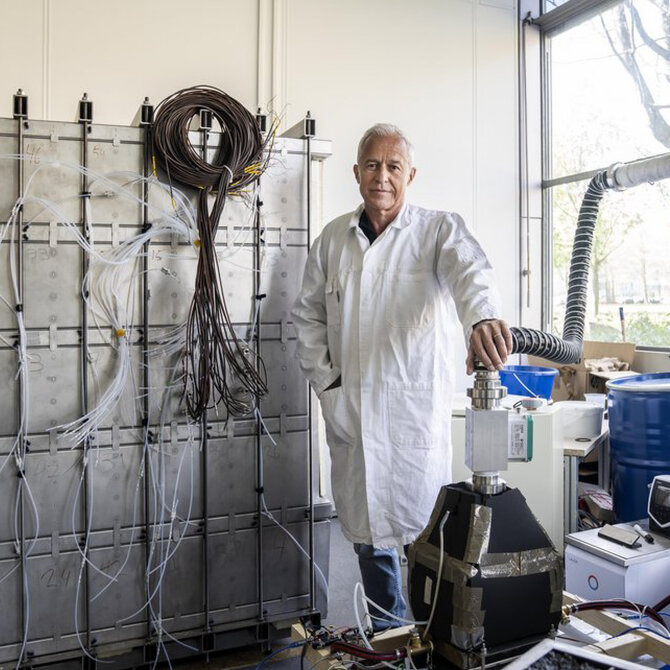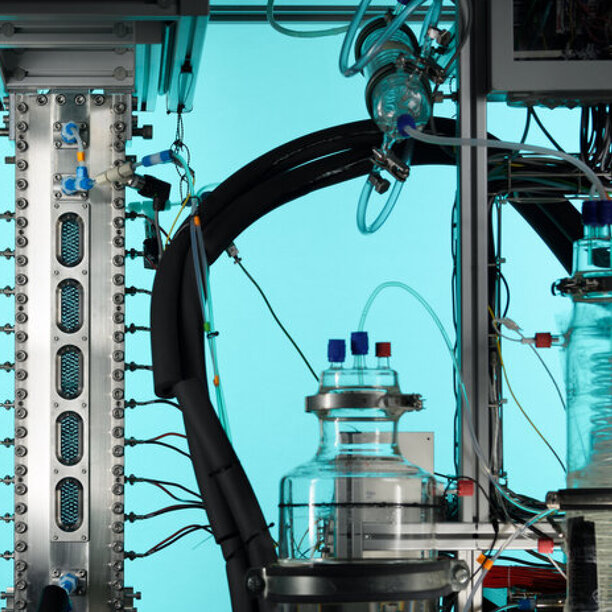EIRES is the institute for renewable energy systems within TU/e. It focuses on energy storage and conversion. But the word "systems" is in the name for a reason. "Because only with new forms of energy are we not going to complete the energy transition. We need systems thinking." said Mark Boneschanscher, general director of the institute. Richard van de Sanden, scientific director, complements him: "Our power grid, for example, cannot take much more solar and wind energy. It's not designed for that. So we have to get creative to keep the pace in the energy transition."

Looking wider
Mark and Richard cite some examples of that creativity. Such as storing heat in batteries specifically for that purpose. Olaf Adan, together with TNO, designed such a battery. It is as big as a refrigerator and can provide an average family with hot water for about two weeks. Handy in Dutch winters when solar panels don't provide enough to do that.
Series instead of scale
It is also a great example of thinking and working in earnest. According to Marc, too many researchers think in scale as a way to increase yield. But from working with the manufacturing industry in our area, they learned how much smaller units not only provide much more flexibility, but can also be made faster. And together they provide as much energy as a larger unit.

![[Translate to English:] [Translate to English:]](https://assets.w3.tue.nl/w/fileadmin/_processed_/d/4/csm_csm_Combi-elektrolyzers_756d35fc0a_74e2cddb11.jpg)
![[Translate to English:] [Translate to English:]](https://assets.w3.tue.nl/w/fileadmin/_processed_/b/f/csm_Foto%20Martin_9d285e254a.jpg)
![[Translate to English:] [Translate to English:]](https://assets.w3.tue.nl/w/fileadmin/_processed_/9/f/csm_008_20221114_Twycer_TUe_InnovationNight_LR_4bae2efb78.jpg)